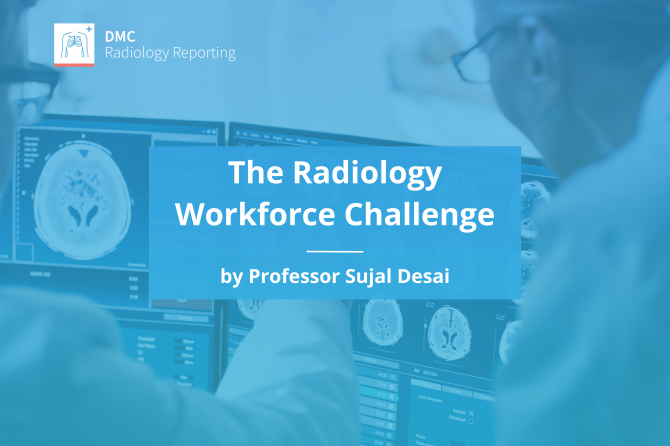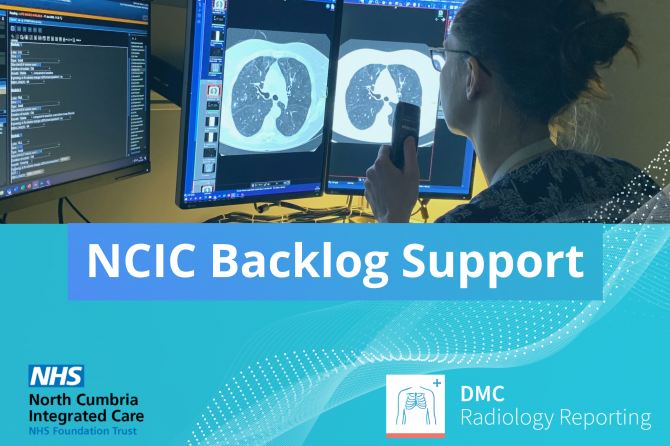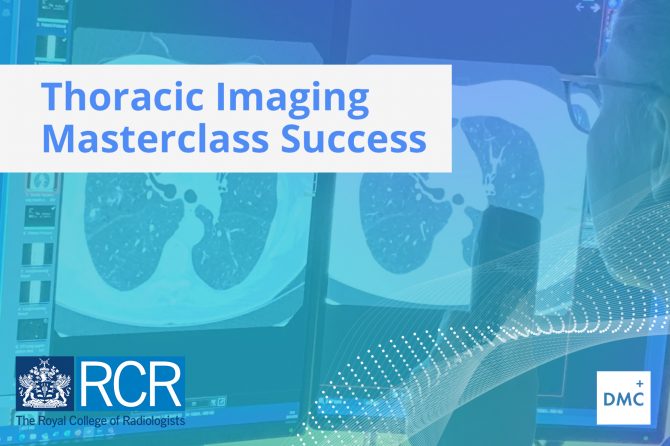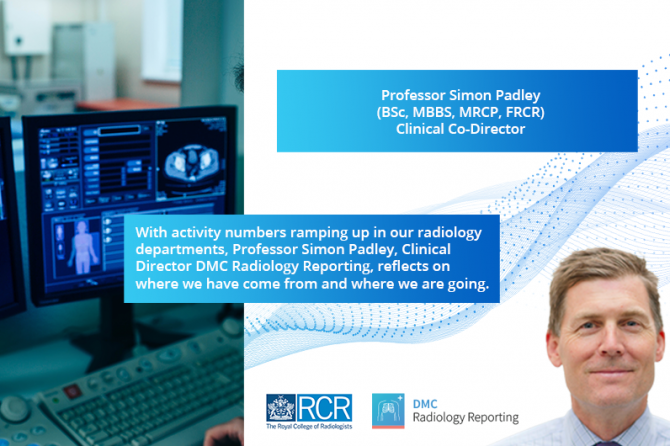
Blog | The Radiology Workforce Challenge
DMC Radiology Reporting co-founder and clinical director Professor Sujal Desai, career–long cardiac and thoracic radiologist, talks about the role of AI and the upcoming RCR annual conference.
Read more
DMC Radiology Reporting co-founder and clinical director Professor Sujal Desai, career–long cardiac and thoracic radiologist, talks about the role of AI and the upcoming RCR annual conference.
Read more
DMC Healthcare, a leading independent provider of radiology reporting, primary care, dermatology and endoscopy services, has been supporting North Cumbria Integrated Care NHS Foundation Trust to tackle backlogs in radiology reporting services. The reporting backlog of CT/MRI cases grew to a peak of 2800 but is now down to 600.
Read more
With activity numbers ramping up in our radiology departments, Professor Simon Padley, Clinical Director DMC Radiology Reporting, reflects on where we have come from and where we are going.
Read more
With activity numbers ramping up in our radiology departments, Professor Simon Padley, Clinical Director DMC Radiology Reporting, reflects on where we have come from and where we are going.
Read moreClinical effectiveness means ensuring that all aspects of service delivery are designed to provide the best outcomes for patients. This is achieved by ensuring that the right care is delivered to the right person at the right time they are in need and in the correct setting.
A patient’s information should always be up to date and correct on any systems used. It should also be confidential through correct storage and management of data.
Risk Management involves having robust systems in place to understand, monitor and minimise the risks to patients and staff and to learn from mistakes. When things go wrong in the delivery of care, our staff teams should feel safe admitting it and be able to learn and share what they have learnt, which embeds change in practice.
Communication with patients and the public is essential to gain insight on the quality of care we deliver, and any possible problems that can result. Public involvement is equally as important to ensure that patient and public feedback is used to improve services into day-to-day practice for better patient outcomes.
This encompasses the provision of appropriate support to enable staff to be competent in doing their jobs and to develop their skills so that they are up to date. Professional development needs to continue through lifelong learning.
This ensures the organisation recruits highly skilled staff and aligns them with the correct job roles. Staff are supported in professional development and to gain and improve their skills.
The aim of the audit process is to ensure that clinical practice is continuously monitored and that deficiencies in relation to set standards of care are remedied. Research goes alongside audits to pioneer best practice improvements.